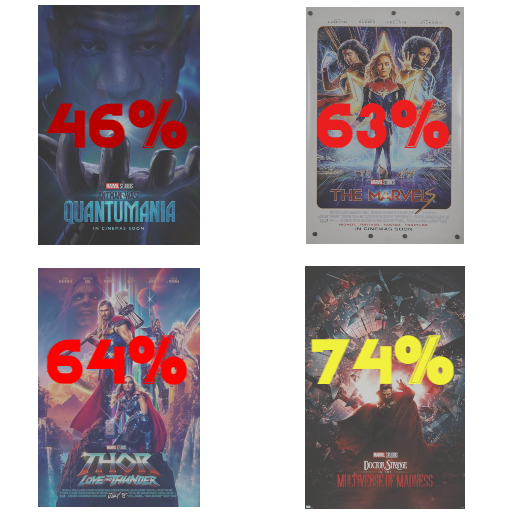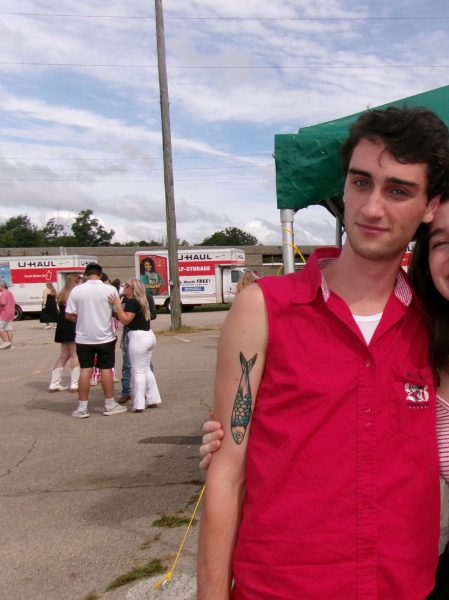When most people think of the big movies of recent years, they immediately go to Marvel and the Marvel Cinematic Universe. The MCU is dominant in the film industry in a way that has never truly been seen before. This dominance has produced a film industry that no longer rewards artistry, but instead pushes repetition. With sequel after sequel and cameo after cameo, the MCU has created a pillar of the same faces telling the same stories.
Every new movie in the franchise is met with record numbers and grossly high audience turnout rates. Amusement parks have been constructed and countless projects, television shows and movies have been released. The MCU’s gigantic presence has consequences just as large.
But what is the MCU? While it may just seem like a collection of superhero movies and shows, it goes a tad beyond that. All the projects are set in the same world. The characters can run into each other and interact, storylines intersect and overlap and the viewers get to attach themselves to familiar faces throughout it all.
The first film to enter the MCU was “Iron Man” in 2008, which was quickly followed by “The Incredible Hulk” later that year. However, the MCU didn’t truly take off until the beginning of the Avengers series, where they put together several known superheroes into a single movie. Released in 2012, “The Avengers” did very well and began an explosion of demand for more.
The MCU began to churn out movie after movie, and after buying Spiderman from Sony, they had another explosion of sales with the Spiderman series starring Tom Holland. Since its creation, the MCU has constantly topped the charts, with “Deadpool & Wolverine,” released earlier this year, already the 22nd highest-grossing movies at the all-time box office.
They also dominate the brands and franchise sections of the box office, having over double the grossing numbers of the runners-up in both sections. This domination has led other brands, franchises and directors to try to profit off of this demand for familiarity. This idea seems harmless; why wouldn’t we want to create worlds for audiences to disappear into? Why is it a problem that these movies are doing so well?
Through its mass production of similar stories, the MCU has created a new environment in cinema that pushes aside creativity and originality to focus more on familiarity and entertainment.
Looking at recent years, there has been a huge influx of sequels and reboots. Disney recently held a huge fan event titled D23 where they announced a large number of films, the majority of which were sequels or additions to pre-existing franchises. Live-action shows and movies are being created of animated films from the past, and reboots of popular shows and movies are constant.
The creation of the MCU has highlighted this mass need for familiarity in film, with consumerism begging for more of the same, instead of something new and challenging. Audiences have been conditioned to enjoy franchises and remakes, instead of new concepts and characters.
The stories contain a simple good vs. evil timeline, where we learn that sometimes the evil is just someone who’s misunderstood, or an alien from another planet. This may be simplifying it a bit, but throughout the 34 films inside the MCU, not including the television shows, there isn’t much variation in what is said.
These movies are made to entertain, not challenge. The executives creating these movies want to please as many people as they possibly can to make as much money as they possibly can and therefore do not take any real risks in the filmmaking process. Yet, what is the point of art if not to challenge? To push back against what has been said, even if you may ruffle a few feathers?
The MCU has also promoted a vision of the world that does not align with reality. Not in terms of people having superpowers, that isn’t reality, but in the way these characters look. All the actors and actresses look completely flawless in the films and shows. They have perfect hair, perfect skin and muscled bodies.
They also all speak perfectly, act perfectly and just don’t seem like realistic human beings. While yes, they are superheroes, it still instills this idea that to be super you have to be flawless. These characters are meant to be role models, but how can children ever hope to achieve this level of perfection when it is completely unattainable?
The superheroes also seem to be completely asexual, with any romance being purely emotional with maybe a kiss shared between the romantic leads. The audience doesn’t see them eat too often, and if they are sad it is because of something dramatic and over the top, and not because they are just stressed with everyday life. With all these images of perfection, the MCU is causing audiences, either consciously or subconsciously, to try to become a perfect version of themselves. Not just a better version, but perfect. Flawless. To be a superhero is to lack all basic human impulse.
Movies shouldn’t present a perfect world all the time. In alternate realities where superheroes fight aliens and robots, people still are people. The MCU has created a mass narrative that promotes perfection when films should promote imperfection. Stories that truly impact the world connect to some deep part of ourselves we are too scared to talk about.
Next time a movie comes out you’ve never heard of, maybe check it out. Just because you don’t know the actors or franchise doesn’t mean the story isn’t worth seeing.


